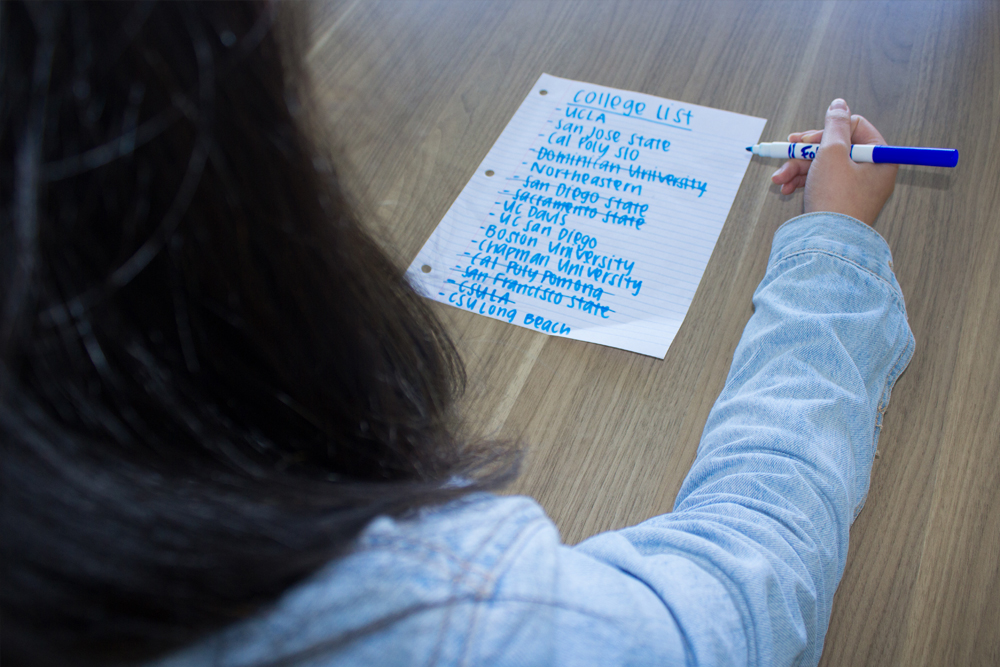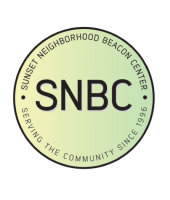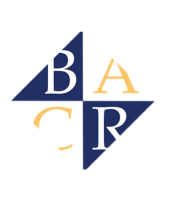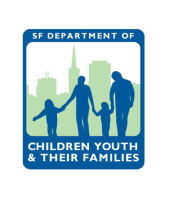Hello, Aceline here! As a current senior in high school, I finished all my college applications way back in January and am now hearing back from them. Since this is the time college admission decisions are being released, I decided to make my first post about how to deal with college rejections, acceptances, tips for applying, and also an overview of the application process.
I remember that back in October I had no idea what I was doing, and barely knew anything about college (despite all the college presentations my school made us sit through), so here are my answers to some questions I had, or a lot of my friends had, about college. I wanted to make my answers as detailed as possible, so this post is a bit long. (If you’re a second semester senior like me, feel free to skip to the end where I start talking about hearing back from colleges.)
When should I start compiling my college list?
You should start looking into what colleges you want to apply to the summer after your junior year and have your finalized list by October or November.
How do I decide which colleges to apply to?
Before I answer this question, I want to quickly define reach, target, and backup schools, in case you don’t know what they are.
Reach schools – schools you’re likely not going to be admitted to, or schools with their average scores & GPA higher than yours
Target schools – schools you don’t know if you’ll be admitted to, or schools with their average GPA & scores around yours
Backup schools – schools you think you’ll likely be admitted to, or schools with their average scores & GPA lower than yours
For me, I applied to a few CSU’s, most of the UC’s, and a few out-of-state schools and private schools; most people do the same. I suggest applying to two or three backup schools, two reach schools, and a lot of target schools. Don’t apply to only one backup because acceptance rates can fluctuate each year. For example, I got waitlisted at one of my backup schools, which I was really confused by, but I guess the acceptance rate dropped.
When I first started making my list, it had over twenty-five schools on it, but I started to question my choices soon afterward. Could I see myself actually attending all of these schools? The answer was no for a lot of them, and I was able to narrow down my list to 15 schools. If you won’t be happy at a certain school, don’t apply.
Make a list of what you are looking for in a school. While your major should be your top priority, there are other factors to consider too. Do you want a small school? Located in a city? Lots of activities and clubs? Big Greek life? Religion? I personally wanted a school with a good Communication program, located in a quiet town within my state, had small classes, not religious, and had a gymnastics club. However, I couldn’t find a school with those exact standards that was to my liking, so I had to make sacrifices in some areas. Ultimately, I decided that my first choice would be UC Davis.
It’s perfectly fine not to have a first choice school. Many people just wait to see what schools they get into before they decide which one they want to go to. I suggest not having a first choice because it saves you the possible devastation of being rejected.
In case you’re curious, the schools I applied to were UCLA, UC Berkeley, UC San Diego, UC Davis, UC Irvine, UC Santa Cruz, UC Santa Barbara, Cal Poly San Luis Obispo, San Jose State, CSU Long Beach, Boston University, Northeastern University, University of Washington, University of the Pacific, and Chapman University.
How exactly do I apply to college?
For private schools, you fill out the Common Application or they might have their own separate application on their website; some schools have both and you could fill out either one of those. For UC’s, you apply through the UC Application. For CSU’s, or state schools, you apply through CSU Mentor. For other schools, you apply through their own personal website in the admissions page. I’m warning you now, college applications are so incredibly tedious. There is so much you have to fill out, such as your parents’/guardians’ occupations, your household income, etc.
When you apply, you can apply for each college Early Decision, Early Action, or Regular. Most public schools, such as UC’s and CSU’s, only have regular admission but most private schools have ED and EA in addition to regular admission. ED is binding, meaning that if you are admitted, you are required to attend. The deadline is much earlier than the regular decision deadline, most likely around November. Applying ED lets the college know that they’re your first choice.
Early Action is similar to ED but it isn’t binding, so you are not required to attend if you’re admitted. Some schools have Restrictive Early Action, meaning that that school only permits you to apply Early Action to them and no other school. Applying EA makes it easier to get admitted, but not as easy as applying ED.
What do I do if I don’t have anything to write about for my personal statements?
My junior year, I had to write a personal statement for my Expository Writing class and I had no idea what to write about, so I just made something up. During my senior year, however, I had more than enough to write about. Almost everything I wrote about happened during either my junior or early senior year (but I don’t think most people are in this same boat).
In my essays, I wrote about my previous jobs, gymnastics, being in Peer Resources, and a story about a time I thought I was going to die. If you’re on a sports team or an officer of a club, I suggest writing about that, but don’t force anything! As long as you are trying new things, such as getting a job or joining a club, or doing anything distinctive outside of school, I wouldn’t worry.
If you aren’t involved with anything whatsoever and all you do is go to school and go home, you might have to spend some time brainstorming. What do you like to do during your free time? What do you do to relax or alleviate stress? What’s your favorite class and why do you like it?
As long as it’s not for the same school, you can write about the same subject for different essays. You might even be able to use the same essay for different schools, but you will probably have to edit them a little bit so that they fit each prompt.
Here are some links to common personal statement prompts:
UC Personal Insight Questions
Common App Prompts
University of Washington Prompts
Here are some examples of good personal statements: http://www.shmoop.com/college/personal-statement-examples.html
When should I start writing my personal statements?
Start writing the summer after junior year, or at least start brainstorming about what to write then. By September, you should have started writing. By mid-October, you should hopefully just be getting feedback on your essays. Your essays are what distinguishes you from countless other people with your exact statistics and extracurriculars, so take them seriously and devote a lot of time to them!
Who do I ask to read my personal statements?
Ask your English teacher, or previous English teachers you’ve had (who remember you), your school counselor, and your friends! Just because your friends aren’t adults, doesn’t mean they can’t be helpful. I actually ended up rewriting a lot after getting my friends’ feedback. If your school offers free college help, take advantage of that! My school offered free editing on essays and I signed up for it and it was really helpful, despite being free.
Do colleges look at freshmen and senior year grades?
CSU’s and UC’s look at them, but they don’t consider them during admission. However, they still look at what classes you’re taking senior year, so continue challenging yourself by taking hard classes! Most private schools consider your freshmen year grades and the first semester of senior year.
Colleges also have rescinding policies, which are really scary. Rescinding means once you gain admission to a school, they can cancel your admission and rescind you if your grades drastically fall, such as failing a class or having your GPA fall below 3.0.
I need a letter of recommendation, who do I ask? My counselor has to write one too, but he/ she doesn’t know me.
Ask a teacher whose class you participated in a lot, or asked questions a lot in. If you never participated or asked questions, settle for any teacher who simply remembers you and your name. Typically, or at least at my school, the teacher will have questions for you to answer so they know more about you. LOR’s are usually one to two pages long, so they need a lot to write about.
Some teachers set a maximum amount of LOR’s or a deadline to ask for one, so make sure you ask your teachers for LOR’s early (around August or early September)! It’s recommended you ask one English/History teacher and one Math/Science teacher. Don’t ask teachers whose classes you slacked off in or didn’t pay attention in.
For your counselor, I suggest scheduling an appointment to ask questions about college and to help build your college list and he/ she can get to know you then.
Can I ask a teacher for a letter of recommendation who doesn’t work at my school anymore?
Yes, but they’re not obligated to do so. If you don’t have their contact information, you can probably ask your counselor for their email address.
What if I can’t get into a college?
Be optimistic about college! I got into a few colleges I wasn’t sure I would, and even got scholarships to some of them. Also, be open-minded to attending state schools or city/community colleges. CSU’s don’t require essays and most don’t even require the SAT or ACT. I don’t think there should be a stigma about attending city colleges, especially since you actually save a lot of money by attending.
How do I apply for financial aid?
You can fill out FAFSA and also apply for scholarships. I recommend submitting your FAFSA within the first week it’s released because the earlier you submit, the more likely you’ll receive financial aid. In addition to FAFSA, some private schools also require you to fill out a CSS profile.
Usually, if your EFC (Estimated Family Contribution, or the estimated maximum amount your family can pay for college considering your household income) exceeds your tuition, you won’t receive any financial aid. If your EFC doesn’t exceed your tuition, the difference is how much financial aid you’re eligible to receive.
What if I can’t afford college?
City College in SF is free if you’re an SF resident! Many colleges in Europe, depending on where, can also either be free or a lot cheaper than in the US. I know it can be scary moving across the world for college, but it can also be a lot more affordable there.
What are supplements?
For Common App, you have one long essay (max 650 words) that goes to every school on the Common App you apply to, but each school might require additional shorter essays, also known as supplements. These supplements are usually prompts specifically for that school, such as “Why do you want to go here?”
Here are examples of supplements:
http://www.oxy.edu/admission-aid/apply/application-requirements/page/required-short-answers
How do I decide which college to attend once I’m admitted?
By April, you should hear back from all your schools. I suggest visiting campuses of schools that are your top choices as well as writing a list of each schools’ pros and cons. You have until May 1 to submit your Statement of Intent to Register (which is basically something you send to a school to accept its offer of admission), so you don’t have to decide right away.
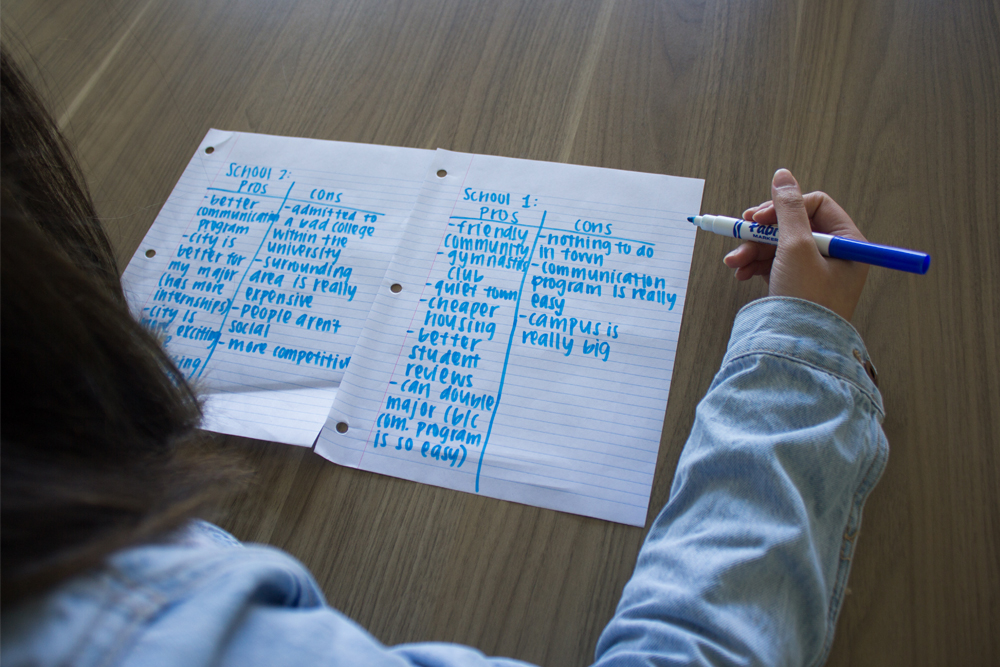
If there are any more questions you have that didn’t get answered, don’t be afraid to ask your school counselor or the college’s admissions office!
Hearing back:
If you were to take away one piece of advice from this post, make it this: Do not make your first-choice school a reach school. If you’re aware rejection is likely, that’s fine, but don’t get your hopes up just to get rejected. Compare your statistics with the school’s freshmen profile; are you around the average? Tell yourself you’ll get rejected; that way if you are, you won’t be as disappointed.
I have so many friends who made their first choices reach schools and they got rejected; needless to say, they were devastated. Though I was heartbroken to see them feel so hopeless and crushed, it also made me wonder why their expectations were so high. Although not impossible, the chances of them getting into those schools were slim. I couldn’t understand why they would bring that disappointment upon themselves by hoping so badly to get in. Save yourself the heartbreak by not relying so much to get in a reach school.
Try not to post your acceptance letters on social media, or go around telling others you got in. Other people could have been rejected by that same school, and maybe it was even their first choice. I understand that you may be excited that working hard throughout high school finally paid off, but it is insensitive to others to show off your acceptance letters. In addition, try not to ask others if they got into a certain school, which I admit I am guilty of doing, but I now know I shouldn’t have. It really doesn’t matter what schools others got into, only the ones you did.
Unless you are a genius with superb essays and extracurriculars, rejection letters are inevitable, but it’s not the end of the world when you receive them. I assure you, life will go on. Going to a less-than-ideal school does not mean you will not have an accomplished career, just as going to a good school does not guarantee success.
I know people who went to schools like Yale and Brown, and I also know people who went to state schools or low-tier UC’s. You know where those people are now? At my school working as teachers. The schools they went to were very different, yet they all ended up on the same path. The college you go to does not dictate your success, working hard does.

